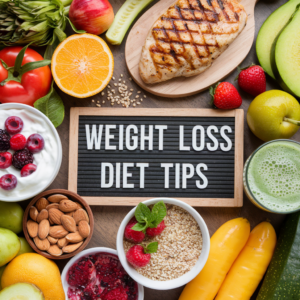The Essential Do’s and Don’ts of the Carnivore Diet for Weight Loss
Introduction
The Carnivore Diet is an all-meat, zero-carb eating plan that eliminates plant-based foods and focuses solely on animal products. While the diet is simple to follow, there are certain strategies you can use to maximize your results and ensure you’re staying healthy. This list of do’s and don’ts will  guide you through the Carnivore Diet and help you achieve sustainable, long-term weight loss.
guide you through the Carnivore Diet and help you achieve sustainable, long-term weight loss.
Do’s of the Carnivore Diet
1. Do Focus on High-Quality Animal Products
For optimal health and weight loss, it’s important to focus on high-quality animal products, such as grass-fed beef, pasture-raised eggs, and wild-caught fish. These foods provide essential nutrients without the additives or hormones found in conventionally raised meat. Eating a variety of animal products will also help ensure you’re getting all the nutrients your body needs while on the Carnivore Diet.
Focusing on high-quality animal products will support your weight loss goals and promote overall well-being.
2. Do Eat Until You’re Full
One of the benefits of the Carnivore Diet is that you don’t need to count calories or restrict portion sizes. The high protein and fat content of the diet promotes satiety, meaning you can eat until you feel full. Listen to your body’s hunger and fullness cues, and stop eating when you feel satisfied. Over time, you’ll naturally adjust to eating the right amount of food for your body’s needs.
Eating until you’re full will help you stay satisfied and reduce the likelihood of overeating or snacking between meals.
3. Do Stay Hydrated
Staying hydrated is essential for overall health, especially on the Carnivore Diet, which eliminates many water-rich plant-based foods. Drinking plenty of water will help prevent dehydration, support digestion, and reduce the risk of constipation. Aim to drink at least 8 glasses of water per day, and consider adding electrolytes to your water if needed to support hydration.
Proper hydration will support your digestion and help you feel more energized throughout the day.
4. Do Monitor Your Nutrient Intake
Because the Carnivore Diet eliminates all plant-based foods, it’s important to monitor your nutrient intake and consider supplements if needed. This may include vitamins C and D, magnesium, and fiber supplements to ensure you’re meeting your nutritional needs. Regularly check in with a healthcare provider to assess your nutrient levels and make adjustments as necessary.
Monitoring your nutrient intake will help prevent deficiencies and ensure you’re staying healthy while on the diet.
5. Do Be Patient During the Adaptation Phase
When starting the Carnivore Diet, some people experience an adaptation phase, also known as the “keto flu,” where they may feel tired, irritable, or experience digestive issues. This phase is temporary, and most people find  that their energy levels and well-being improve after a few weeks on the diet. Be patient during this transition period and give your body time to adjust to burning fat for fuel.
that their energy levels and well-being improve after a few weeks on the diet. Be patient during this transition period and give your body time to adjust to burning fat for fuel.
Being patient during the adaptation phase will help you stay committed to the diet and achieve lasting results.
Don’ts of the Carnivore Diet
1. Don’t Overeat Processed Meats
While the Carnivore Diet allows for all types of animal products, it’s important not to overeat processed meats like bacon, sausages, and deli meats. These foods can contain additives, preservatives, and unhealthy fats that may hinder your weight loss progress. Instead, focus on whole, unprocessed meats like beef, chicken, pork, and fish.
Limiting your intake of processed meats will help support your weight loss and promote overall health.
2. Don’t Ignore the Importance of Hydration
The Carnivore Diet eliminates many hydrating plant-based foods, such as fruits and vegetables, which means it’s important to drink plenty of water throughout the day. Failing to stay hydrated can lead to dehydration, digestive issues, and fatigue. Make sure to drink at least 8 glasses of water per day, and consider adding electrolytes if needed to support hydration.
Staying hydrated will help prevent digestive issues and support your overall health while on the diet.
3. Don’t Skip Meals
Skipping meals can lead to overeating later in the day and disrupt your progress on the Carnivore Diet. The diet encourages eating until you’re full, so there’s no need to skip meals or restrict portion sizes. Make sure to eat regularly and listen to your body’s hunger cues to ensure you’re getting enough food to support your energy levels and weight loss goals.
Eating regular meals will help keep your energy levels stable and prevent overeating or  cravings.
cravings.
4. Don’t Neglect Nutrient Monitoring
Because the Carnivore Diet eliminates all plant-based foods, it’s important to monitor your nutrient intake and consider supplements if needed. Don’t neglect the importance of vitamins and minerals like vitamin C, vitamin D, magnesium, and fiber, which may be lacking in an all-meat diet. Consult with a healthcare provider to assess your nutrient levels and ensure you’re staying healthy.
Monitoring your nutrient intake will help prevent deficiencies and support your long-term health while on the diet.
5. Don’t Be Discouraged by the Adaptation Phase
Many people experience an adaptation phase when starting the Carnivore Diet, where they may feel tired, irritable, or experience digestive issues as their body adjusts to burning fat for fuel. This phase is temporary, and most people find that their energy levels and well-being improve after a few weeks on the diet. Don’t be discouraged by this initial discomfort—be patient and give your body time to adapt.
Being patient during the adaptation phase will help you stay committed to the diet and achieve lasting results.
Conclusion
The Carnivore Diet is a highly effective, zero-carb eating plan that focuses on animal products to promote weight loss and improve overall health. By following these essential do’s and don’ts, you can maximize your success on the Carnivore Diet and achieve your weight loss goals while maintaining a balanced, nutritious eating plan.
Focus on high-quality animal products, stay hydrated, and monitor your nutrient intake to ensure long-term success on your Carnivore Diet journey.